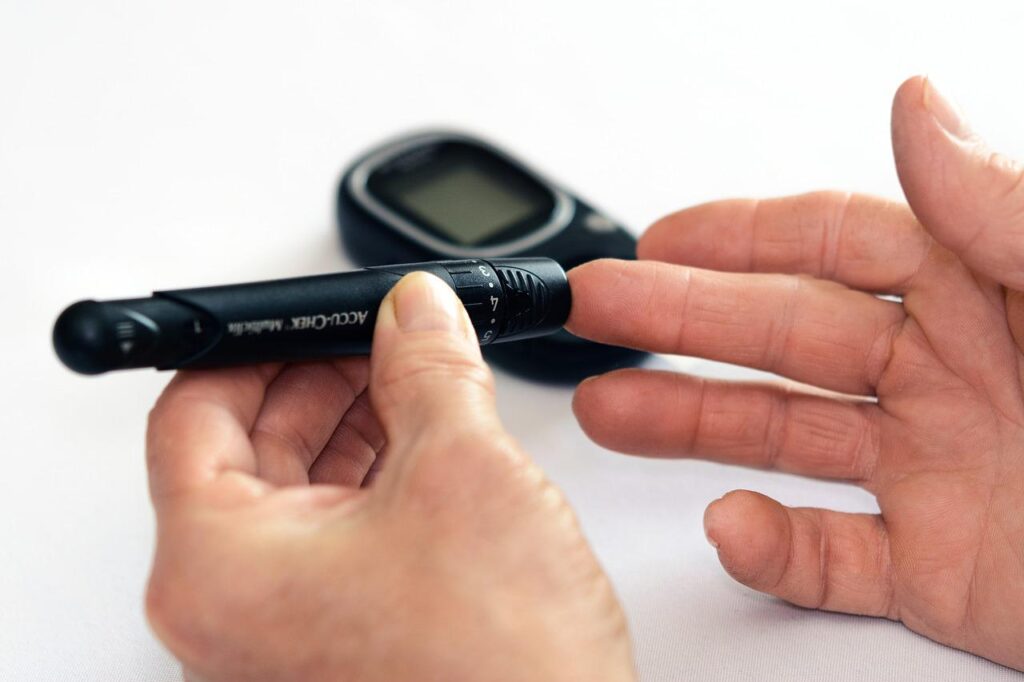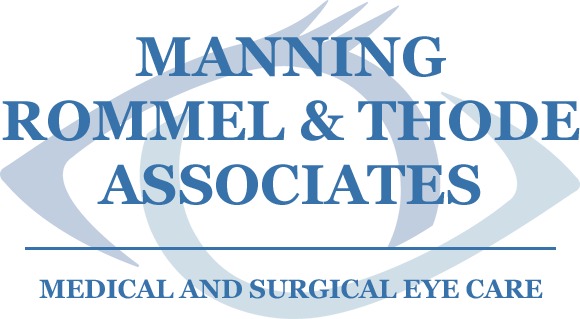Several different eye problems can affect people with diabetes, and not managing diabetes or skipping yearly eye exams can increase your risk of developing poor vision or even blindness. Let’s review how diabetes affects the eyes and what you can do to protect yourself.

How does diabetes affect the eyes?
High blood sugar can cause eye health issues like blurry vision, cataracts, glaucoma, and retinopathy. Here are some ways diabetes can impact your vision.
- Blurry vision: High glucose can change fluid levels and swelling of the lens, which leads to your vision getting blurry. Changing diabetes care or medicine can sometimes lead to blurry vision as your body adjusts, and it will eventually go away. However, long-term blurry vision is a serious issue. It can damage blood vessels, increase swelling, and leak fluids.
- Cataracts: Cataracts affect the lens of your eye. While it’s usually clear and focused, cataracts make the lens turn cloudy. When people have cataracts, they experience blurry or foggy vision. People with diabetes are at a higher risk of developing cataracts.
- Glaucoma: There are multiple types of glaucoma. They all impact the optic nerve, which connects the eyes to the brain. Pressure builds up in the eye because fluid isn’t draining as it should. When not corrected, it can lead to vision loss and blindness.
- Retinopathy: Your eye’s retina is responsible for sensing light and helping to turn it into images for your brain. High blood sugar can damage blood vessels which can harm the retina. As diabetic retinopathy progresses, it can create new and fragile blood vessels. This can cause further damage, like detaching the retina from the eye and creating vision loss.
What are the symptoms of diabetic eye disease?
At first, you may experience no pain or noticeable vision loss with diabetic eye diseases. When symptoms do occur, you may notice the following:
- Blurry or cloudy vision
- Frequently changing vision
- Dark areas or vision loss
- Poor color vision
- Floaters (Spots or dark strings appearing in your vision)
- Eye aches or pain
- Headaches
While you should see an ophthalmologist as soon as possible when you experience any of these symptoms, it can be an emergency if you experience symptoms like flashes of light, sudden blurriness, or more floaters than usual.
What is the treatment?
Treatment depends on the eye disease. Patients with diabetes will need to manage their blood glucose to prevent eye issues or stop it from getting worse.
Depending on the results of your eye exam, an ophthalmologist may recommend treatments like:
- Anti-VEGF medicine to stop the growth of abnormal blood vessels
- Laser treatment to release eye pressure, reduce the number of blood vessels, or stop leaky blood vessels
- Cataract lens surgery to remove the cloudy lens in your eye and replace it with an artificial lens
- Vitrectomy to remove scar tissue and cloudy fluid in the eye
What can you do to protect your eyes?
People with diabetes can care for their eyes by managing their blood sugar levels, cholesterol, and blood pressure. Managing diabetes is crucial to preventing eye disease or stopping eye issues from progressing.
Diabetic eye disease often doesn’t have any symptoms during the early phase. That’s why annual eye exams are crucial to ensuring good eye health. It can catch problems early, making it easier to treat it.
If you’re looking for an ophthalmologist or eye doctor near Lancaster, PA, consider Manning, Rommel, and Thode. We will conduct a comprehensive eye exam to discover the root of the problem and recommend the best course of treatment. Schedule an appointment by calling us at 717-393-7980, option 1.
